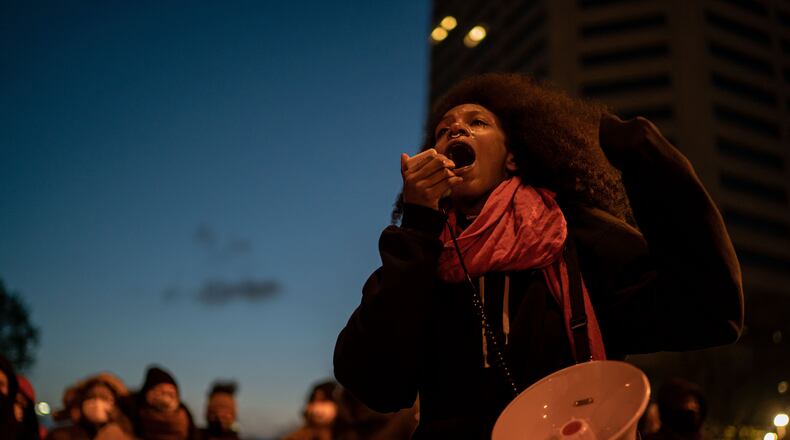“Our legislation is straightforward: It embraces the right of all Americans to peacefully assemble and make their voice heard ― but it also says, when you break the law, there will be consequences,” Abrams said.
More than 100 businesses and government buildings were vandalized, and protests and riots were met with a heavy police presence. Former Minneapolis police officer Derek Chauvin was convicted last week of Floyd’s death on two counts of murder and one count of manslaughter. He’s expected to be sentenced on June 16, and could face up to 75 years in prison.
HB 109 would create a new criminal charge, riot assault, which would be applied if a person engaged in an aggravated riot recklessly causes physical harm that is punishable by a fifth-degree felony. Charges would elevate to a fourth-degree felony if the alleged assault is against a law enforcement officer and a third-degree felony if the law enforcement officer is seriously injured.
The bill’s sponsors say this bill also protects the First Amendment rights of peaceful protestors, but Abrams said “it does say that when misconduct occurs, when the law is broken, those responsible will be held accountable.”
Carruthers adds that “vandalism, looting and violence are not free speech.”
“Frankly, these types of reckless and irresponsible actions ― typically from a handful of agitators ― detract from the core message law-abiding demonstrators are trying to convey,” she said.
HB 109 has the backing of the Ohio Fire Chiefs Association, Fraternal Order of Police of Ohio, and the Ohio Prosecuting Attorneys Association. But Gary Daniels, chief lobbyist for the ACLU of Ohio, there are provisions in HB 109 that goes “well beyond addressing the specific problems.”
“I think as there oftentimes is, there’s a disconnect between what the legislators are hoping to accomplish, and what the bill language is,” he says. “Once the bill leaves their hands, and if it passes ... what that exact language is, is very important.”
HB 109 is one of four bills deemed anti-protest, and Ohio is one of nearly three dozen states, that are cracking down on civil unrest that’s led to vandalism and rioting. House Bill 22 and Senate Bills 16 and 41 also address issues around riots and violent protests.
Daniels said “what really concerns” the ACLU is the provision about individuals or organizations providing “material support or resources,” which according to HB 109 “has the same meaning” as in section 2909.21 of the Ohio Revised Code, which is terrorism definitions. This is also in SB 16.
When applying the “material support or resources” definition to protestors of civil disobedience, “it really starts to beg the question of how far exactly does this go?”
Louis Tobin, executive director of the Ohio Prosecuting Attorneys Association, said last week that the Abrams-Carruthers bill “provides several important updates to our criminal law in response to riots and vandalism.”
“Much of what these bills try to do is already illegal under Ohio law,” he said, adding increasing the punishment would not reduce illegal activity.
Senate Bill 16, as it’s written currently, is a mostly similar bill to HB 109. But Daniels said a substitute Senate bill is expected to be offered this week, stripping multiple provisions, including the “material support or resources” provision.
“It would certainly be a better bill,” he said.
About the Author

